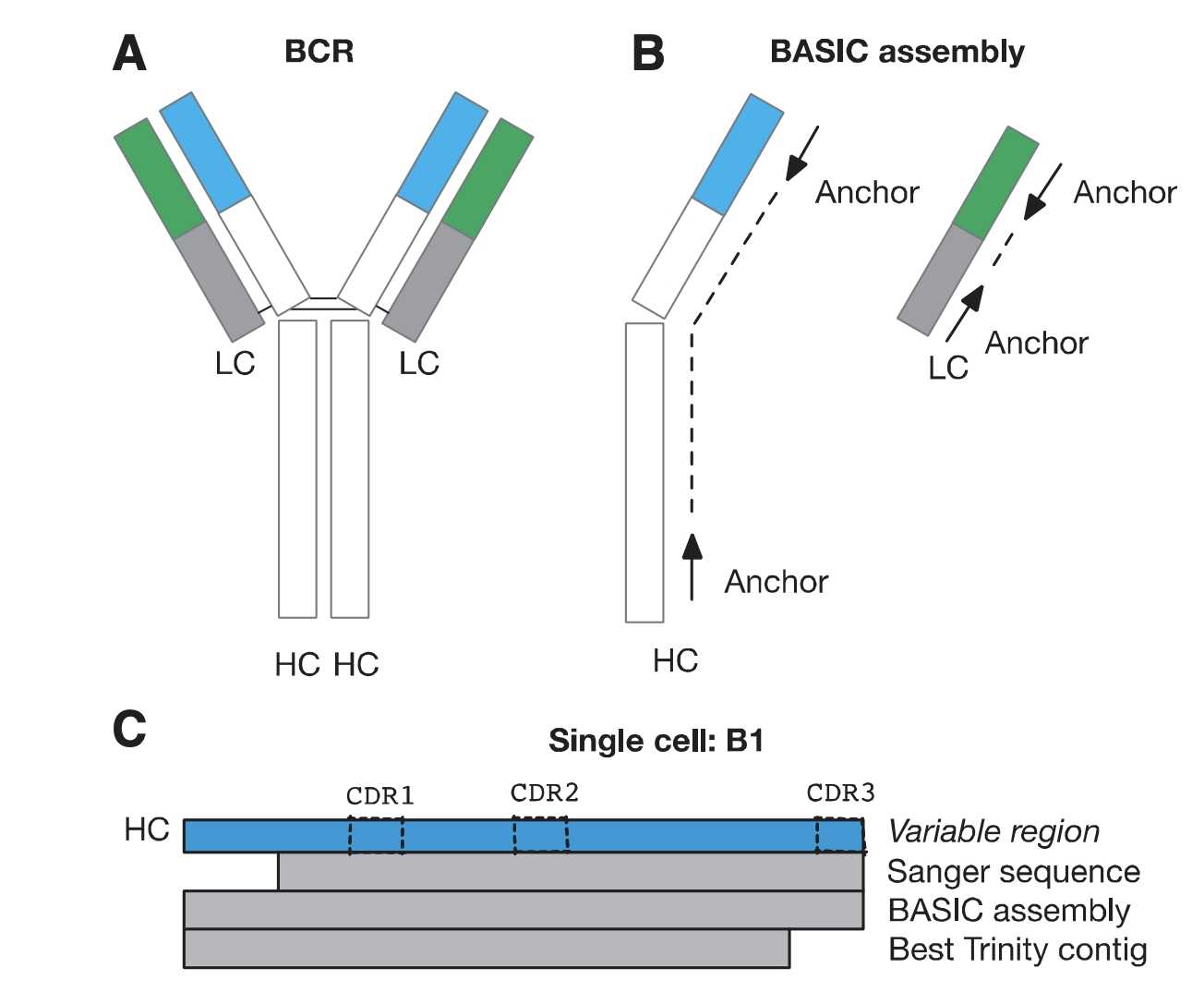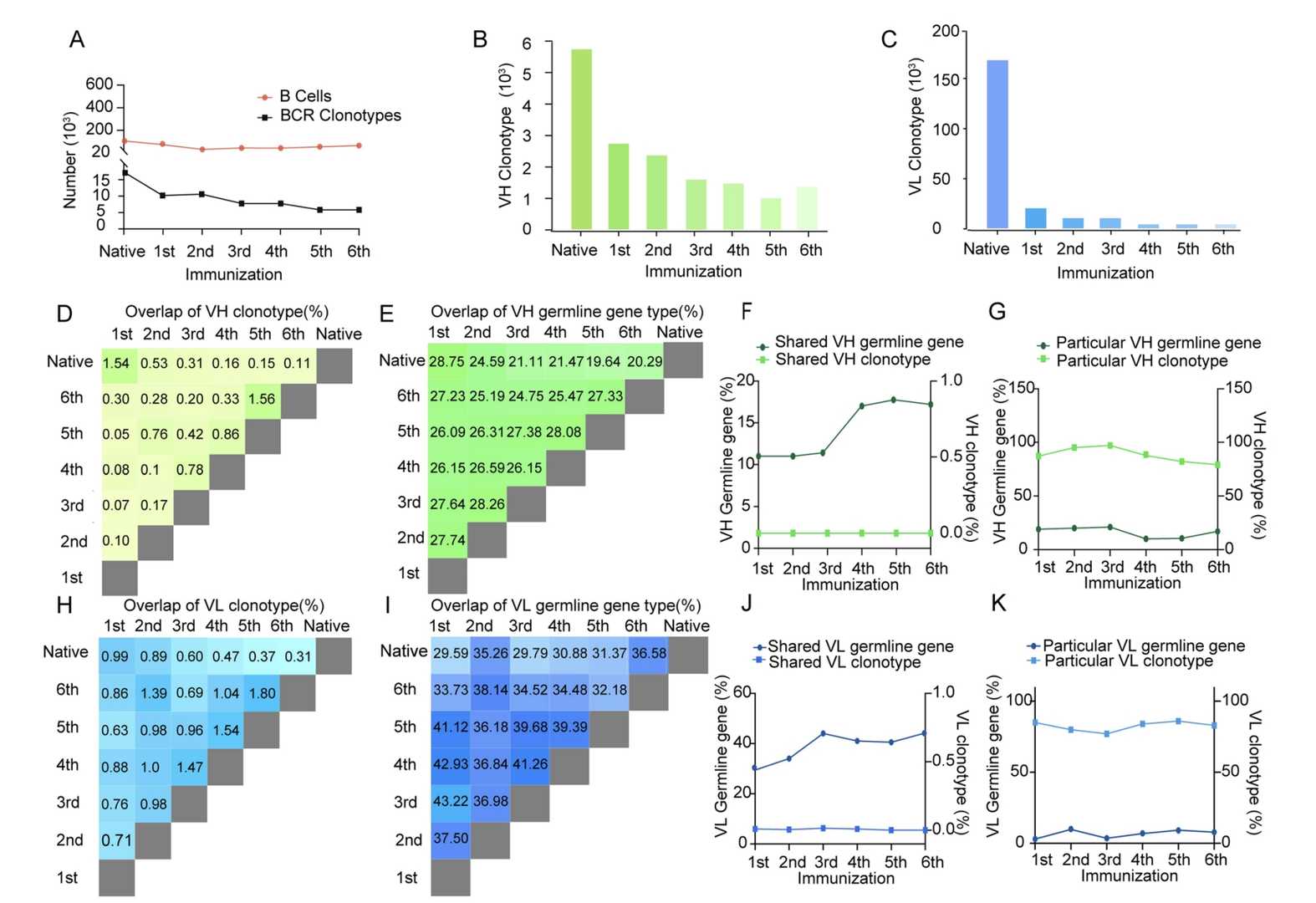B Cell Receptor (BCR) Production and QC Service
With the continuous advancements in biotechnology, the significance of B cell receptors (BCRs) in the fields of immunology research and antibody development is becoming increasingly prominent. BCRs play a crucial role in the recognition of antigens and the mediation of immune responses, making the study of their structure and function essential for the development of novel antibody drugs. In response to this demand, Creative Biolabs has discovered a series of BCR expression and purification services for clients worldwide.
Introduction
BCRs are vital immune molecules that play a crucial role in the immune system. They are responsible not only for recognizing and binding antigens but also for significantly influencing the pathogenesis of various tumors, including leukemia and lymphoma. As a result, there has been a notable increase in the demand for BCR expression and purification services. Creative Biolabs offers specialized BCR expression and purification services to assist clients in accelerating their drug development processes.
In our company, our team specializes in utilizing molecular cloning techniques to construct recombinant expression vectors based on the genetic target BCR sequences, covering many subtypes such as IgM and IgG. We support a range of expression systems, including E. coli, yeast, and eukaryotic cells. Moreover, For clients requiring large-scale production, we offer both batch and continuous protein production solutions, ensuring a stable and efficient supply of BCR proteins. Our facilities are equipped with large bioreactors and automated production lines to meet diverse production scale requirements.
In terms of BCR purification, we employ various chromatography techniques, including affinity chromatography, ion exchange chromatography, and gel filtration chromatography, to achieve efficient purification of the expressed BCR proteins. Our team meticulously optimizes each chromatography method to attain the best possible purification efficiency and the highest protein purity.
 Fig.1 The Structure of B Cell Receptors.1,3
Fig.1 The Structure of B Cell Receptors.1,3
Services
Nowadays, Creative Biolabs offers comprehensive services for BCR expression and purification, aiming to provide efficient and reliable support for BCR research and accelerate the development of new therapies.
- BCR Recombinant Construction: Utilizing cutting-edge genetic engineering techniques and the sequence information provided by clients, we develop highly efficient BCR recombinant plasmids that ensure both stability and functionality.
- Cell Culture and Expression: We optimize cell lines such as CHO and HEK293 to achieve high-level BCR expression, offering large-scale cell culture services tailored to meet the diverse needs of different projects.
- Purification Process Development: For various types of BCRs, we design effective purification workflows employing techniques such as affinity chromatography, ion exchange chromatography, and gel filtration, ensuring high purity and biological activity of the BCR.
- Quality Control and Characterization: Throughout all stages of expression and purification, we adhere to stringent quality control measures, utilizing multiple analytical methods (including SDS-PAGE, Western blotting, and mass spectrometry) to thoroughly characterize the BCR, ensuring the integrity of its structure and function.
- Customized Services: We offer personalized BCR expression and purification solutions based on specific client requirements, along with subsequent functional testing and application support, facilitating faster progress in drug discovery and validation stages for our clients.
 Fig.2 The Analysis of BCR Repertoires.2,3
Fig.2 The Analysis of BCR Repertoires.2,3
Procedures
Creative Biolabs offers BCR expression and purification services, providing clients with high-quality research materials to support their innovative studies in immunology and related fields.
1. DNA Cloning and Transfection
Our BCR expression process begins with gene cloning. We employ synthetic biology techniques to acquire the target BCR gene and insert it into appropriate expression vectors for either E. coli or mammalian cells. During the transfection phase, we utilize highly efficient reagents and methods, such as lipid-based transfection or electroporation, to achieve optimal expression levels.
2. Selecting the Right Host Cells
Choosing the appropriate host cells is crucial for the expression of BCR. Depending on the characteristics of the target protein, we selectively employ various host cells, including E. coli, yeast, HEK293, and CHO cells. For BCRs that require glycosylation, Creative Biolabs primarily uses CHO cells to achieve protein modifications that closely resemble physiological conditions.
3. Optimizing Protein Expression
During the expression stage, our staff enhances the yield and solubility of BCR by optimizing the composition of the culture medium, induction conditions, and cultivation time. In addition, our labs employ various techniques such as transcription factor regulation and temperature adjustment to further increase protein expression levels.
4. BCR Protein Purification
Following expression, purifying the BCR protein is a critical step. Our scientists use multiple purification techniques, including affinity chromatography, ion-exchange chromatography, and gel filtration chromatography, in conjunction with our efficient purification processes to obtain high-purity BCR protein. Additionally, we have implemented advanced purification monitoring technologies, such as online mass spectrometry and HPLC, to ensure that every step meets quality standards.
5. Functional Validation
Finally, the purified BCR protein undergoes rigorous functional validation. Our team confirms the functionality and stability of the obtained BCR through techniques such as ELISA, flow cytometry, and bioactivity assays (cell binding experiments), ensuring its suitability for different research applications.
Advantages
- Efficient Expression System: Our laboratory uses a high-performance eukaryotic expression system, which allows for the rapid production of highly active and pure BCR proteins. Our expression system is optimized for glycosylation and folding processes, effectively simulating the physiological functionality of BCRs.
- Precision Purification Techniques: Acknowledging the diversity of BCRs and their varying performances in different environments, Creative Biolabs has developed a collection of customized purification strategies. By employing a combination of affinity chromatography and ion exchange techniques, we efficiently eliminate impurities while preserving the biological characteristics of the BCRs to the highest degree.
- Comprehensive Custom Services: Whether it's expression targeting specific BCR subtypes or functional purification for distinct applications, we are fully equipped to respond to your needs. Furthermore, we offer downstream services including BCR structural analysis and functional testing, providing comprehensive support for our clients' research endeavors.
- Stringent Quality Control: From cell culture to protein extraction, purification, and analysis, every step adheres to international standards, ensuring the quality and reproducibility of the final BCR product. Clients can gain clear insights into sample purity, activity, and other critical parameters through the analytical reports we provide.
The processes of expressing and purifying BCRs can be complicated and time-consuming, hindering research progress. To address this issue, Creative Biolabs has established a specialized platform for BCR expression and purification services. If you are interested in our BCR expression and purification services or have any questions, please feel free to contact us at any time.
- Canzar, Stefan, et al. "BASIC: BCR assembly from single cells." Bioinformatics 33.3 (2017): 425-427.
- Li, Yuan, et al. "Characteristics of rabbit hapten-specific and germline-based BCR repertoires following repeated immunization." One Health Advances 1.1 (2023): 17.
- Distributed under Open Access license CC BY 4.0, without modification.
For research use only. Not intended for any clinical use.
This site is protected by reCAPTCHA and the Google Privacy Policy and Terms of Service apply.



